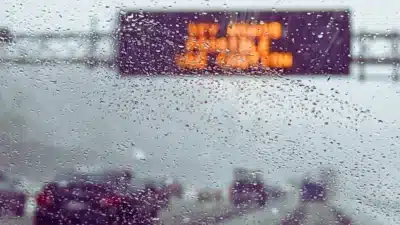
Slick roads, reduced tire traction, impaired visibility, and driver negligence combine to increase crash risks in wet conditions in Chicago. Understanding these contributing factors helps you avoid accidents during wet weather and establish liability if a reckless driver injures you in an accident.

Texting while behind the wheel is a top cause of distracted driving accidents. For those involved, seeking legal assistance for texting and driving accidents can help them identify their options and obtain compensation for losses and medical expenses.

Knowing how to prove negligence in personal injury cases is essential to achieving a successful case outcome. Proving negligence in a personal injury case requires establishing these four elements: duty, breach of duty, causation, and damages.

Personal injury lawyers get paid in the form of contingency fees. Under contingency fee arrangements, the lawyers don’t get paid until they win your case. Their fee is a percentage of the compensation they recover for you. Below, you’ll learn more about how contingency fees work for attorneys.

When you’ve been injured by someone else’s negligence in Chicago, you may wonder, “What happens in a personal injury lawsuit?” A lawsuit starts when you file a complaint in court, and the discovery phase follows, during which evidence is exchanged. A pre-trial motion may be filed, and if a settlement isn’t reached, your case will go to a court trial where a judge or jury evaluates the evidence and decides who wins.

If someone injures you and causes you to make a personal injury claim, a question that may arise is: “Should I settle my personal injury case?”

Years after suffering injuries, those harmed while receiving medical care in Chicago as infants may still have options to pursue compensation.

When medical negligence results in serious adverse health outcomes, such as strokes, patients in Chicago, Illinois, may pursue legal action to recover damages for their losses. According to the Centers for Disease Control and Prevention, someone has a stroke every 40 seconds in the U.S. Those who suffer strokes often experience serious, and lasting effects.

In Illinois, workplace injuries are typically covered under workers’ compensation, which provides benefits regardless of fault. However, there are instances where a third party, someone other than your employer or a co-worker, might be responsible for your injury. In such cases, you may have grounds to file a third-party liability claim in addition to your workers’ compensation claim.

A denial does not mean the end of the road for your workers’ comp claim. Illinois law provides avenues for appeal and assistance for workers whose claims have been wrongfully denied.